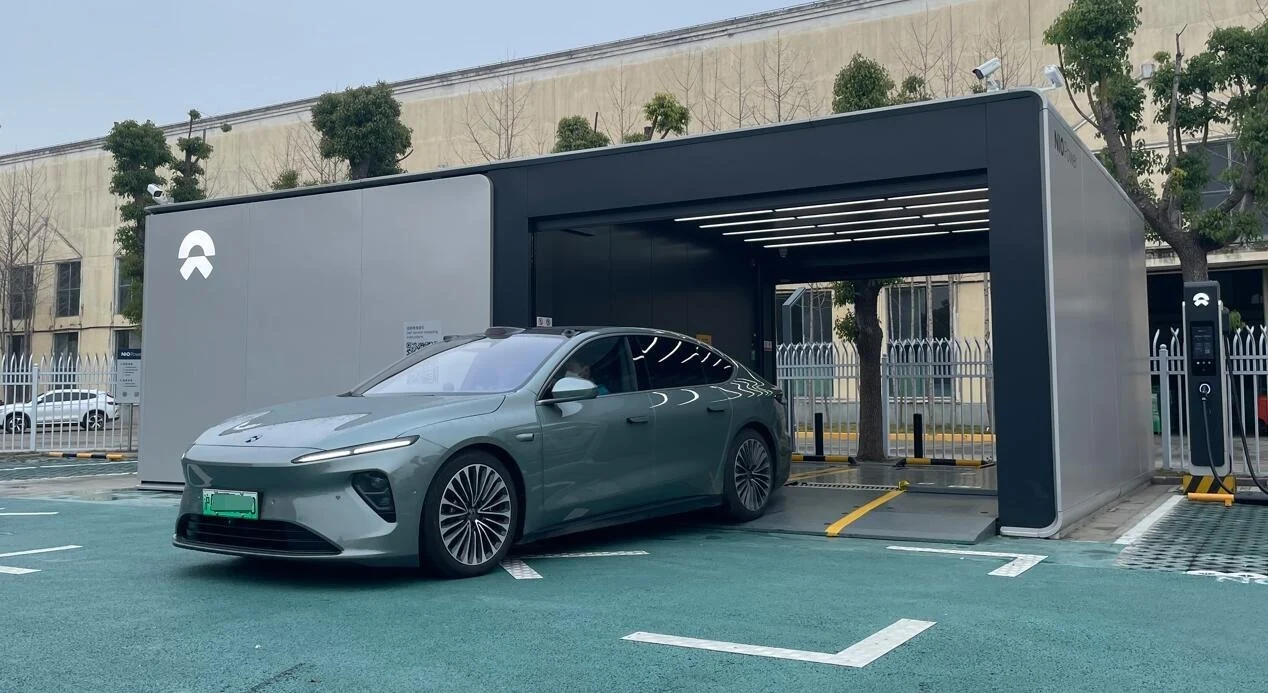Key Takeaways
1. CATL is focusing on EV battery swap stations, aiming to replace depleted batteries in under 5 minutes, with a $346 million investment for a global network in collaboration with NIO Power.
2. NIO vehicles can autonomously navigate to swap stations, with battery swaps taking about 3 minutes, supported by a new 15-year warranty for swapped batteries.
3. The partnership between CATL and NIO aims to ensure 85% battery capacity retention after 15 years, surpassing Tesla’s 70% retention after 8 years.
4. The initiative addresses key concerns for EV buyers regarding resale value and charging time, while also working towards global standards for battery swapping.
5. CATL plans to establish a network of 30,000 battery swap stations, enhancing the entire lifecycle of batteries through R&D, swapping services, and recycling.
As BYD revealed a new 1MW electric vehicle (EV) framework designed to make charging as quick as filling a gas vehicle, CATL, the largest battery manufacturer globally, is tackling the challenge in a different manner.
Battery Swap Stations Initiative
CATL is now focusing on EV battery swap stations which can replace a depleted battery in under 5 minutes. They plan to create the largest swap station network worldwide in collaboration with NIO Power, a leader in battery swapping, by investing $346 million into the project.
In December, CATL introduced its #20 and #25 power packs, named in a style reminiscent of fuel octane ratings, like #95 or #98. Designed for battery swap stations, the #20 packs are available in 42 kWh LFP and 52 kWh nickel battery versions. Meanwhile, the #25 variant boasts a capacity of 56 kWh LFP and 70 kWh ternary battery models.
NIO’s Automated Technology
NIO vehicles have the capability to autonomously navigate to a station, swap their battery for a fully charged one in roughly 3 minutes, and then continue on their way. CATL serves as the primary supplier of batteries for these stations, and they are collaborating with NIO to provide a 15-year battery warranty for electric vehicles, an increase from the current 12 years offered on their swap station packs.
This extended warranty could significantly impact the industry and positively affect the second-hand EV market. Presently, the standard warranty for batteries is 8 years, which may not suffice, especially with around 20 million EVs set to exit their warranty period in the near future, potentially harming the resale value of used electric vehicles.
Setting New Standards
The partnership between CATL and NIO is not only focused on establishing a 15-year warranty but also on ensuring that 85% of the battery’s capacity remains after that time, which is higher than the 70% capacity retention Tesla currently provides after its 8-year warranty period.
Hence, the collaboration between CATL and NIO for the vast battery swap station network aims to alleviate two major concerns for prospective EV buyers: resale value and charging time. They are also working to create global standards for battery swapping to facilitate network expansion.
NIO already runs thousands of swap stations both in China and internationally, while CATL will ensure that their network remains compatible and runs alongside it.
According to CATL, the world’s largest EV battery swap network “will create a complete lifecycle loop that includes battery R&D, swapping services, asset management, reutilization, and material recycling, helping to lower costs and boost efficiency throughout the entire value chain.”
When unveiling its #20 and #25 swappable battery packs, CATL expressed ambitions to ultimately create a network of 30,000 battery swap stations. Partnering with a pioneer like NIO is expected to “leverage their combined strengths in technology, management, platforms, and brand presence,” claims the largest battery manufacturer globally.
Source:
Link


Leave a Reply